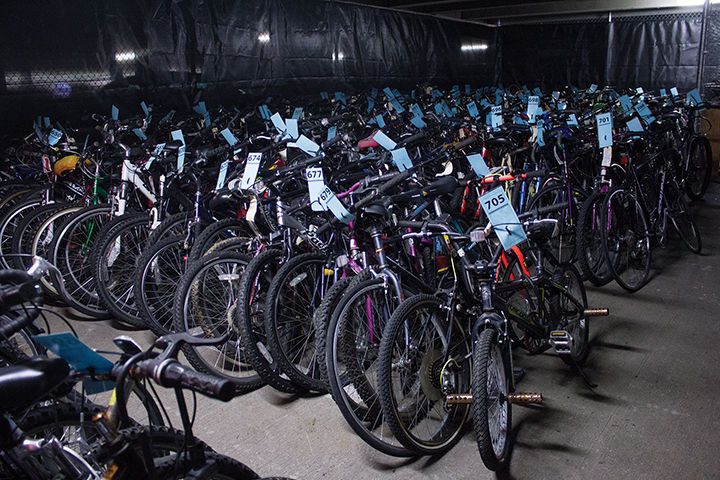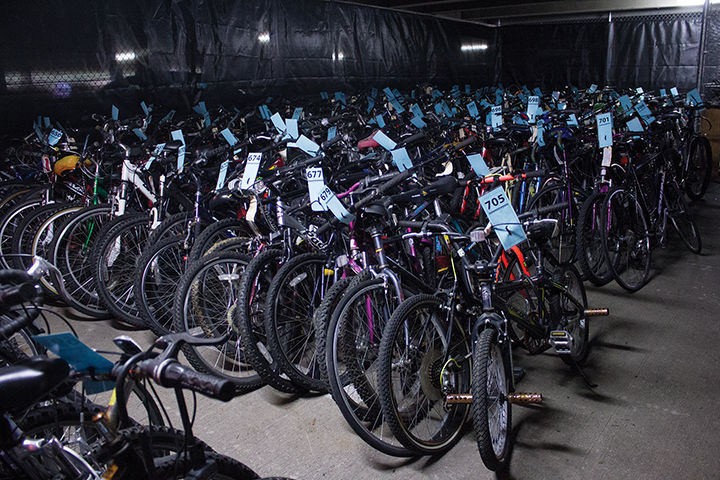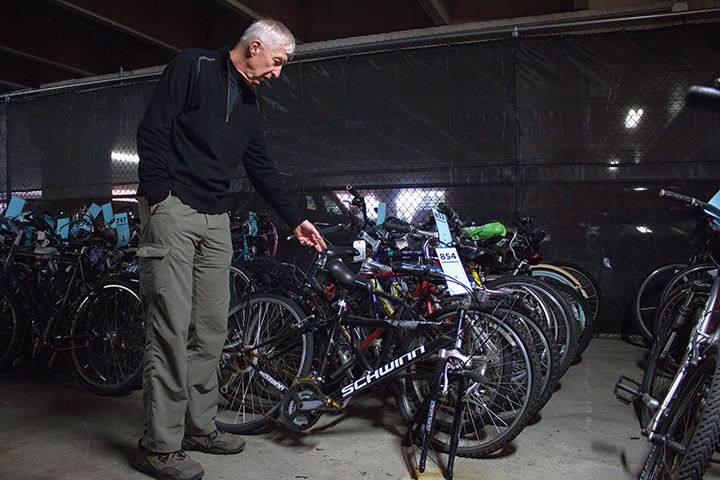Within the Regents Drive and Mowatt Lane parking garages sits a combined 3,000 square feet of storage facilities filled with rusted and forgotten bicycles.
The Department of Transportation Services began a bike impoundment facility in 2010, and the number of impounded bikes has been increasing since then, said Anna McLaughlin, DOTS assistant director.
There are currently about 350 impounded bikes on the campus.
“[The storage] is a necessity,” McLaughlin said. “‘Impound’ isn’t the nicest word — people usually think it’s a negative, but if we didn’t have this mechanism on campus, there would be no parking available for students to lock up their bikes.”
DOTS can impound a bike if it is left on a rack outside an academic building for more than 72 hours, or if it’s in a state of disrepair, McLaughlin said. Bikes will have notices attached to them for two weeks before getting impounded, and campuswide searches for abandoned bikes are held multiple times a year.
DOTS is required by state impoundment laws to keep the bikes for a year and a day before getting rid of them. The department then donates all suitable bikes to local charities that provide alternative transportation to low-income families, McLaughlin said.
John Cardea, who rides a bike around campus, said there’s a need for removing abandoned bikes left on frequently used racks.
“I’ve seen several bikes up by the diners and by [Oakland Hall] that have been there for months on end,” the sophomore computer engineering major said. “They just take up space that other people need to be using. They need to do a better job of enforcing this and keeping track of how long the bikes have been there.”
DOTS is trying to enforce impoundment and encourage students to donate bikes rather than abandoning them, especially with nicer weather on the way, McLaughlin said. Nicer weather means more bikers, which creates a need for more parking, she added.
“I don’t think that a lot of people really know about it,” McLaughlin said. “It’s not something we’ve done a lot of marketing on, but we’re really trying to inform people by the end of this semester for the summer.”
When DOTS impounds a registered bike, the department contacts the owner, who must show proof the bicycle is his or hers before claiming it. The current return rate of impounded bicycles is about 8 percent, McLaughlin said.
David Kiernicki said he thinks students abandon their bikes because they’re cheap and not worth fixing up.
“Being from out-of-state, I bought a cheap bike at Target instead of bringing my bike from home,” the sophomore computer engineering major said. “It is not worth it to bring it back home for the summer, and I’m not aware of any way to donate a bike on campus.”
McLaughlin said students can turn in their bikes to DOTS, which will donate the bikes immediately, saving space in the impoundment facility.
BikeUMD stores lost or improperly parked bikes from around the campus in an impound located in the Regents Drive Garage.
Michael Levengood, bicycle coordinator, works to keep the campus a bicycle-friendly environment and return lost bicycles to their proper owners.





